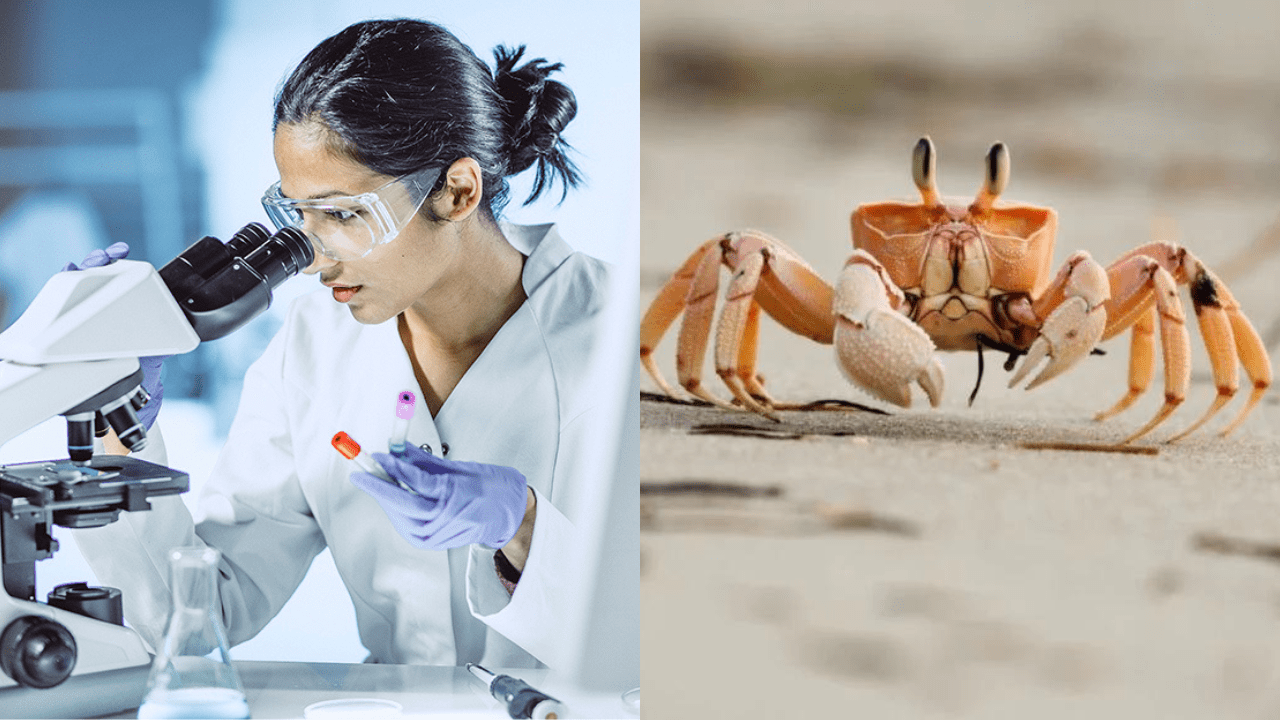Scientists Find A Hopeful Treatment For Obesity in Crabs & Bugs!
Obesity is a growing concern around the world. Finding ways to fight it has been a real challenge over the years. Scientists have found a hopeful treatment in a substance called chitin. Chitin is found in the shells of crabs, spiders, and insects. It might just be the key to a new way of treating obesity. Let’s dive into this exciting discovery and see how chitin could change the game in the fight against obesity! Recent research conducted by scientists at the Washington University School of Medicine in St. Louis has found the link between chitin and its potential to revolutionize obesity treatment. The study is published in the journal Science. The Chitin Connection Chitin is like the secret ingredient we never knew about. It’s…
Obesity is a growing concern around the world. Finding ways to fight it has been a real challenge over the years. Scientists have found a hopeful treatment in a substance called chitin. Chitin is found in the shells of crabs, spiders, and insects. It might just be the key to a new way of treating obesity. Let’s dive into this exciting discovery and see how chitin could change the game in the fight against obesity!
Recent research conducted by scientists at the Washington University School of Medicine in St. Louis has found the link between chitin and its potential to revolutionize obesity treatment. The study is published in the journal Science.
The Chitin Connection
Chitin is like the secret ingredient we never knew about. It’s usually used for making things stronger or for delivering medicine, but now scientists think it might help us fight obesity too. When we eat chitin, our stomach starts an immune response in our gut. It has the potential to help in losing weight.
“Obesity is an epidemic. What we put into our bodies has a profound effect on our physiology and on how we metabolize food. We’re investigating ways to counteract obesity based on what we learn about how the immune system is engaged by diet,” says an assistant professor of pathology and immunology, Steven Van Dyken.
How Chitin Works
There are various enzymes in our stomachs. They break down the chitin we eat. In our bodies, there are two important enzymes for this: chitotriosidase 1 (CHIT1) and acid mammalian chitinase (AMCase). These enzymes have been our defense against harmful things like fungi and parasites with chitin in their cell walls. They also play a role in conditions like asthma and other immune problems.
#WashingtonUniversitySchoolofMedicine #Chitin A novel obesity treatment could lie in the exoskeletons of crabs, bugs https://t.co/jdHuzvr7WU pic.twitter.com/tApflio0nF
— OptimOZ.com.au (@OptimOZ) September 11, 2023
Research Experiments
Scientists ran experiments on mice to understand chitin’s role in fighting obesity. They divided the mice into three groups. One group couldn’t make the enzymes to break down chitin. The second group had normal enzyme production, while the last group didn’t eat any chitin at all.
The mice that ate chitin but couldn’t break it down gained the least weight and had the least body fat. It’s like chitin was their secret weapon against obesity!
“We think chitin digestion mainly relies on the host’s own chitinases. The stomach cells change their enzymatic output through a process we refer to as adaptation. But it is surprising that this process is happening without microbial input, because bacteria in the gastrointestinal tract are also sources of chitinases that degrade chitin,” says professor Steven Van Dyken.
The Immune System Connection
What’s fascinating is how this works. It turns out that the mice who couldn’t break down chitin had a strong immune response in their bodies. This response seemed to help them stay slim even when they ate a lot of fatty food. It’s like their immune system was working overtime to keep them healthy.
What’s Next: Human Studies
The researchers are excited about these findings, and they want to see if it works the same way in humans. So, they’re planning to do studies with people. They want to check if adding chitin to our diets while stopping our bodies from making those enzymes could help us control our weight better.
Chitin Isn’t Just for Bugs
Now, you might be wondering, “Do I have to eat bugs to get chitin?” Well, the answer is no! Chitin is also found in things that we eat, like yeast, algae, and common mushrooms. That means we can make supplements or add them to our diets in a way that’s much more appealing than eating bugs!
Conclusion
In the fight against obesity, scientists have stumbled upon something amazing. Chitin from crabs and bugs might be a powerful tool to help us lose weight. This discovery shows that chitin can boost our immune system and make it easier for our bodies to stay healthy and slim. The research requires further studying. However, the idea of using chitin-based treatments gives us hope that we might find a better way to tackle obesity and stay fit.
Also read,






